'Nobody wants to go rowing in a polluted river'
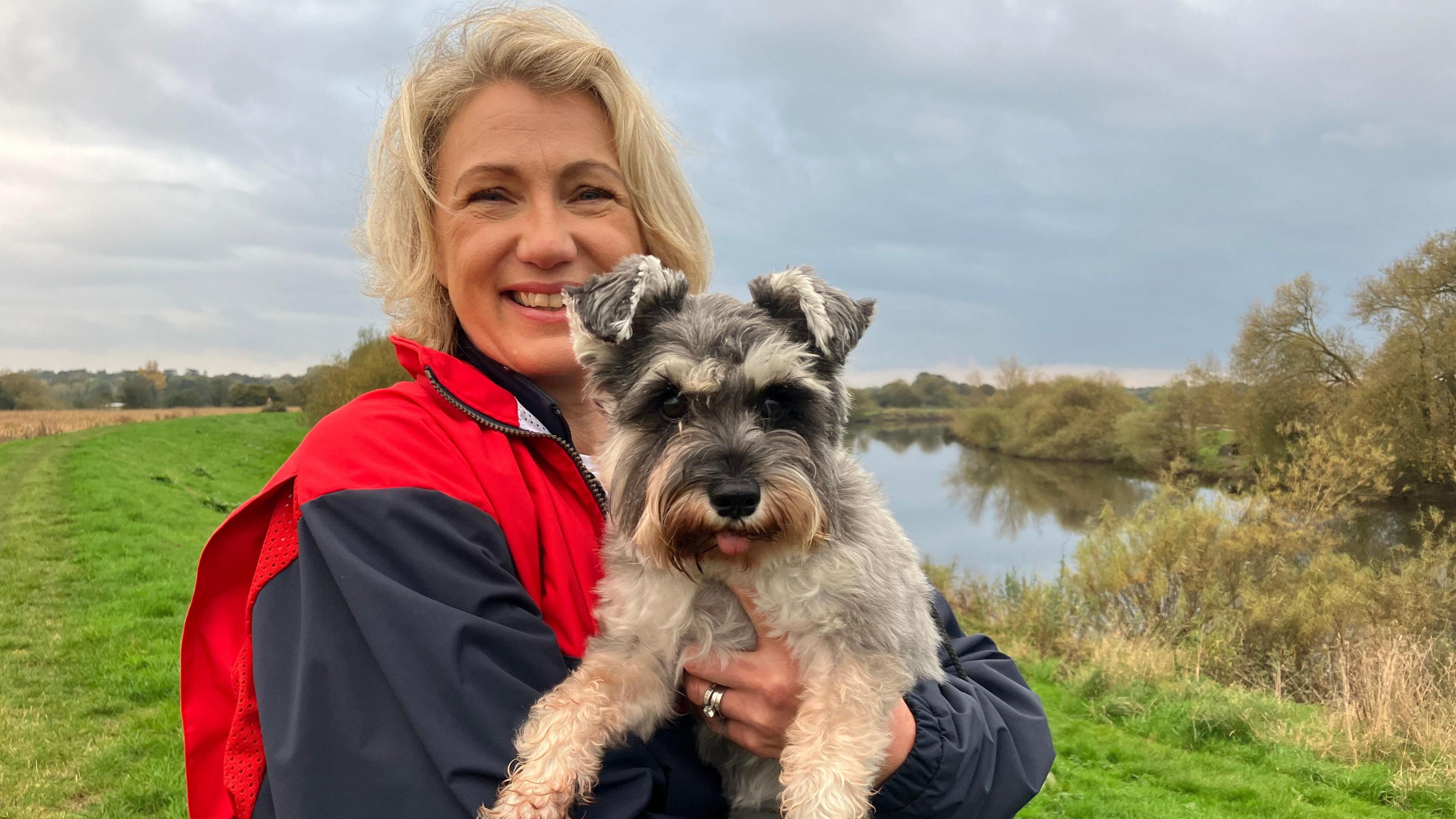
Julia Loach-Martin says she will no longer let her dog drink from the River Trent
- Published
Thousands of people marched through central London on Sunday urging the government to take action over the UK's polluted waterways.
Among them were members of Newark Rowing Club who made the journey from Nottinghamshire to take part in what they described as the most important march they had ever attended.
The club says pollution in the River Trent is "stopping people from doing the sports we love".
Environment secretary Steve Reed said he shared the public's anger on the issue and was "taking immediate steps to clean up our rivers, lakes and seas".
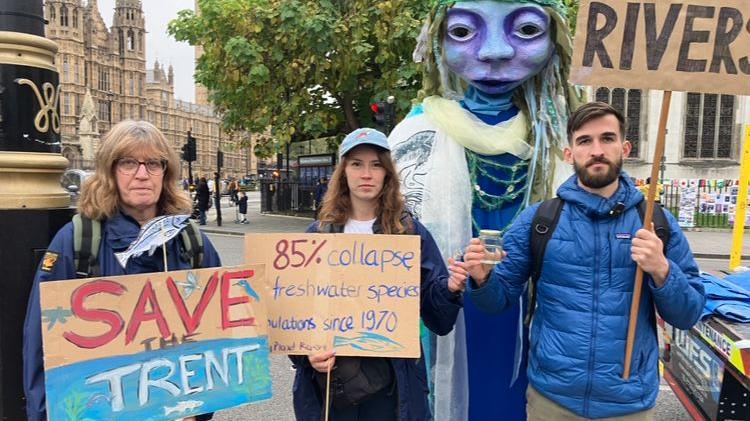
Vanessa Sumpmann, Lewis Coupland and Alison Thornhill from the Trent Rivers Trust also joined protesters
The March for Clean Water was organised by River Action UK.
It called on the government to enforce existing laws designed to tackle water pollution and ensure "all polluting industries" upgrade infrastructure and reduce water wastage.
Andy Joy, captain of Newark Rowing Club, said: "The one thing we need as a rowing club, is water to use.
"If it's unsafe because of pollution, we’ve got a problem because we just won’t be able to go out."
Amelia, a 17-year-old club member, said: "The first time I fell in I got 'Trent belly', which is similar to norovirus. I was off for two weeks.
"I’ve been getting more illnesses from the river recently and that’s a clear indication of the water quality."
William, another young member, said: "When it's bad quality you can really smell the difference and just outside the rowing club you can actually see it being quite brown and dirty."
In response, the Environment Agency said: "The River Trent is not a designated bathing water, so health risks from using these locations may be higher than at designated bathing waters."
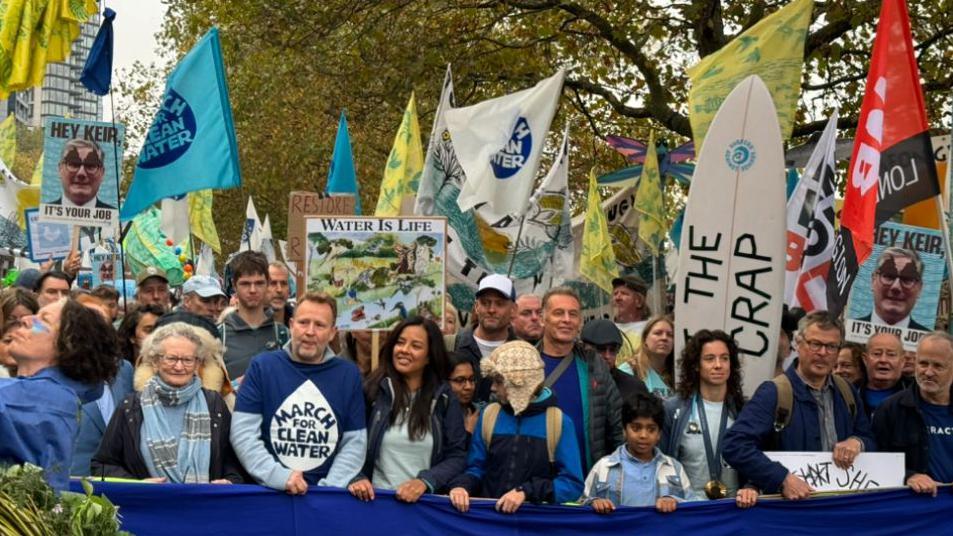
Wildlife broadcasters Chris Packham, Johnny Flynn and Liz Bonnin were among the protesters in central London
Julia Loach-Martin, who has lived along the River Trent all her life and rows at Newark-on-Trent Boat Club, was among those marching on Sunday.
She said seeing wildlife on the river was "part of the joy", and crucial for her wellbeing.
"We see everything from swans and herons, kingfishers etc. That’s part of the joy of being on the water early in the morning.
"But nobody wants to be paddling rowing, swimming about in polluted water.
Team-mate Louise Lyons said: “I’ve never protested for anything before in my life, but I feel really passionate about this.
“I just want it to be a safe environment - especially as when you're learning to row as a junior, you’re most at risk to fall in.
“I don’t want our young people getting sick because they’re doing something they love."
Vanessa Sumpmann, from the Trent Rivers Trust, said: "The Trent, like any other river, is in crisis.
"It only sees a fraction of the life it could hold, and it’s really time we invest in our rivers and their health."
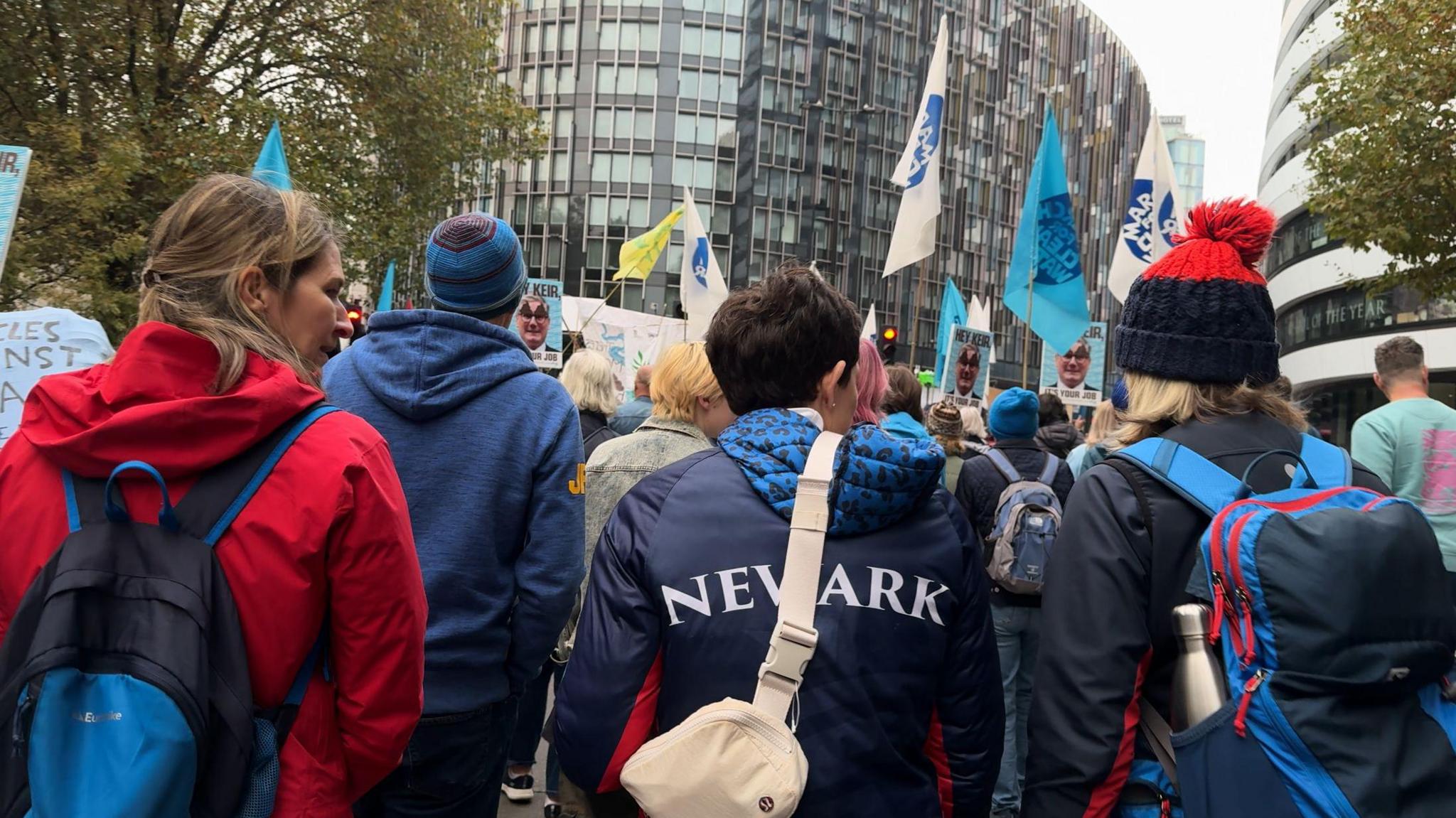
Newark-on-Trent was well represented at the march
In 2023, the River Trent saw an additional 12,000 sewage spills, which Severn Trent Water said was due to increased rainfall in the Midlands.
The firm said: "We’re taking major strides to play our part in safeguarding the region’s rivers, with nearly 500 rapid improvements already under way as part of a massive £450m plan to drastically reduce the use of storm overflows this year."
Environment secretary Steve Reed said: "I share the public’s anger on this issue, and I am taking immediate steps to clean up our rivers, lakes and seas.
"We are placing water companies under special measures through the Water Bill, which will strengthen regulation including new powers to ban the payment of bonusses for polluting water bosses and bring criminal charges against persistent law breakers."
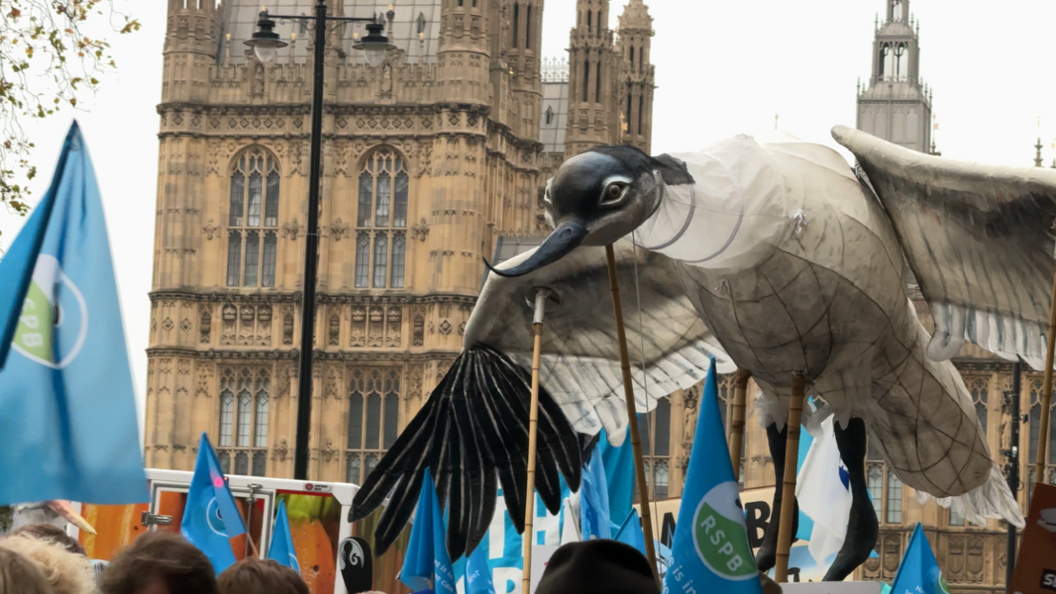
The march ended outside parliament square
Get in touch
Tell us which stories we should cover in Nottingham
Follow BBC Nottingham on Facebook, external, on X, external, or on Instagram, external. Send your story ideas to eastmidsnews@bbc.co.uk, external or via WhatsApp, external on 0808 100 2210.